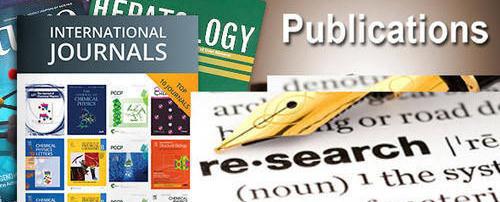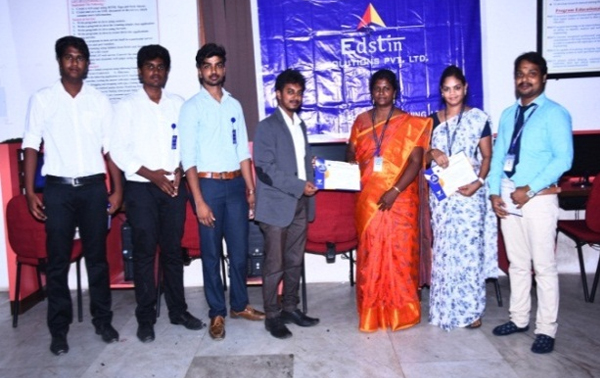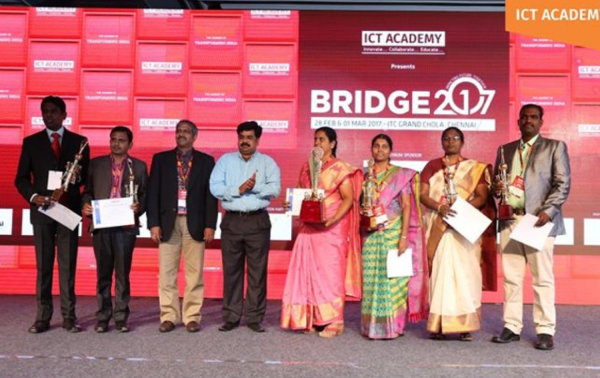
About the Department
Vision and Mission
HOD Profile
Faculty List
Prog. Edu Objectives & Outcomes
Department Advisory Board
Laboratory
Curriculum and Syllabus
Question Bank
MoU's signed
Library
Publications
Magazine
Funded Details
Business English Certificate Course
About the Department
The Department imparts best training to the students on Computer Science Engineering. The Department provides state of the art computing facilities to the students. It also promotes active industry-institute collaboration by identifying areas of interest. The department has qualified and experienced faculty members in the areas of Computer Architecture, Database Systems, Image Processing, Artificial Intelligence, Data Mining, Computer Networks, and Software Engineering.
The Department with well equipped laboratory imparts quality practical education. The department aims to create computer engineers who can make a mark in many aspects of computing, from the design of individual microprocessors, personal computers and supercomputers to circuit design.

Consistent with the high standard of excellence aimed by the Institution, the faculty comprises a team of carefully selected and highly qualified persons who have proven record of meritorious accomplishments to their credit. We have Doctorates and Postgraduates specialized in various disciplines who have extensive industrial and teaching experience. The staff strength is according to the norms prescribed by All India Council For Technical Education, New Delhi, Government Of Tamil Nadu And Affiliated To Anna University.












Vision and Mission
VISION
To evolve as a Centre of Excellence in Computer Science and Engineering to compete with latest trends and also persistently strive to inculcate the requisite skills in research, innovation and entrepreneurship, making the budding engineers as competent professionals to take up any global challenge.
MISSION
- To produce high-quality Computer Engineers with employable skills and professional standards by imparting theoretical and practical training.
- To collaborate with industry in pursuit of education and research, leading to the development of commercially-viable technologies.
- To develop an overall personality of the students by encouraging them to participate in co-curricular and extra-curricular activities.
- To train teachers capable of inspiring the next generation of engineers and researchers.
- To develop research interest among the student community.
DEFINING PROCESS-VISION AND MISSION

HOD Profile
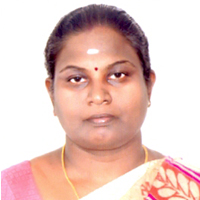
Dr. V. Subedha M.E., Ph.D.,
Professor and Head of the Department of Computer Science and Engineering
Dr. V. Subedha Professor and Head in the Department of Computer Science and Engineering has 22 years of teaching and 7 years of research experience.
She received her Doctorate Degree from Sathyabama Institute of Science and Technology 2013. Her Current research interest includes Artificial Intelligence, IOT, Computer Graphics, Network Security, Image processing and Software Engineering. She is a Life Member of the Indian Society for Technical Education (ISTE) and Nominee Member of Computer Society of India (CSI) and Member of IEEE and IARA.
She has published more than 72 papers in International Journal and Conference proceedings and 2 books. She has completed several certification courses in EMC Corporation and NPTEL.
She was the recipient of Professional Achievement award from IEEE Madras Section, Best HOD From CSI (Mumbai) for three consecutive years, Best International Paper Presenter Award, Maximum Paper publishing in CSI and Best Co-ordinator in ICT Academy of Tamilnadu. She is a reviewer for reputed Journals. She has experience in guiding research Scholar and working on the research and development projects.
Faculty List
| S.No. | Name of the Full time Teacher | Designation | Qualification |
| 1 | Dr. V. Subedha | Professor & Head | M.TECH.,Ph.D |
| 2 | Dr. S. Hemalatha | Professor | M.E.,Ph.D |
| 3 | Dr. W. Gracy Theresa | Professor | M.E.,Ph.D |
| 4 | Dr. A. AnbarasaPandian | Professor | M.E.,Ph.D |
| 5 | Dr. T. Tamilselvi | Associate Professor | M.TECH.,Ph.D |
| 6 | Mrs. D. Lakshmi | Associate Professor | M.E.,(Ph.D) |
| 7 | Mr. T. A. Mohanaprakash | Associate Professor | M.TECH.,(Ph.D) |
| 8 | Mrs. S. Hemamalini | Associate Professor | M.E.,(Ph.D) |
| 9 | Mrs. M. Therasa | Associate Professor | M.E.,(Ph.D) |
| 10 | Mrs. S. Panimalar | Associate Professor | M.TECH.,(Ph.D) |
| 11 | Mrs. A. JerrinSimla | Associate Professor | M.E.,(Ph.D) |
| 12 | Mrs. S. M. Poonkuzhali | Associate Professor | M.E |
| 13 | Mr. S. Kaviarasan | Assistant Professor | M.E.,(Ph.D) |
| 14 | Mrs. K. HemaPriya | Assistant Professor | M.TECH.,(Ph.D) |
| 15 | Mr. K. Sathyamoorthy | Assistant Professor | M.TECH.,(Ph.D) |
| 16 | Mrs. K. Revathi | Assistant Professor | M.E., (Ph.D) |
| 17 | Mrs. M. Geetha | Assistant Professor | M.E |
| 18 | Mrs. M. Abirami | Assistant Professor | M.TECH |
| 19 | Mrs. M. Dhivya(13-10-1989) | Assistant Professor | M.TECH |
| 20 | Mrs. T. AniBernish | Assistant Professor | M.E |
| 21 | Mrs. E. Archana | Assistant Professor | M.E |
| 22 | Mr. S. Raja | Assistant Professor | M.TECH |
| 23 | Mrs. A. Porselvi | Assistant Professor | M.E |
| 24 | Mrs. M. Vidhya | Assistant Professor | M.E |
| 25 | Mrs. S. Annie Sheryl | Assistant Professor | M.E |
| 26 | Mrs. K. SujaRajeswari | Assistant Professor | M.E |
| 27 | Ms. R. Christina Rini | Assistant Professor | M.E |
| 28 | Ms. P. Monica | Assistant Professor | M.E |
| 29 | Ms. E. Keerthana | Assistant Professor | M.E |
| 30 | Mrs. D. Tamizhmalar | Assistant Professor | M.E |
| 31 | Mrs. J. SagayaRejeInshiya | Assistant Professor | M.E |
| 32 | Ms. S. LincyJemina | Assistant Professor | M.E |
Program and Outcomes (PO)
Engineering Graduates Will Be Able To:
- Engineering knowledge:
Apply the knowledge of mathematics, science, engineering fundamentals, and an engineering specialization to the solution of complex engineering problems. - Problem analysis:
Identify, formulate, review research literature, and analyze complex engineering problems reaching substantiated conclusions using first principles of mathematics, natural sciences, and engineering sciences. - Design/development of solutions:
Design solutions for complex engineering problems and design system components or processes that meet the specified needs with appropriate consideration for the public health and safety, and the cultural, societal, and environmental considerations. - Conduct investigations of complex problems:
Use research-based knowledge and research methods including design of experiments, analysis and interpretation of data, and synthesis of the information to provide valid conclusions. - Modern tool usage:
Create, select, and apply appropriate techniques, resources, and modern engineering and IT tools including prediction and modeling to complex engineering activities with an understanding of the limitations. - The engineer and society:
Apply reasoning informed by the contextual knowledge to assess societal, health, safety, legal and cultural issues and the consequent responsibilities relevant to the professional engineering practice. - Environment and sustainability:
Understand the impact of the professional engineering solutions in societal and environmental contexts and demonstrate the knowledge of, and need for sustainable development. - Ethics: Apply ethical principles and commit to professional ethics and responsibilities and norms of the engineering practice.
- Individual and team work:
Function effectively as an individual and as a member or leader in diverse teams, and in multidisciplinary settings. - Communication:
Communicate effectively on complex engineering activities with the engineering community and with society at large such as being able to comprehend, write effective reports, design documentation, make effective presentations, give and receive clear instructions. - Project management and finance:
Demonstrate knowledge and understanding of the engineering and management principles and apply these to one’s own work, as a member and leader in a team, to manage projects and in multidisciplinary environments. - Life-long learning:
Recognize the need for, and have the preparation and ability to engage in independent and life-long learning in the broadest context of technological change.
Programme Educational Objectives
- PEO-I :
To excel in Computer Science and Engineering programme to pursue their higher studies or to succeed in their profession through quality education. - PEO-II :
To acquire knowledge in the latest technologies and innovations and an ability to identify, analyze and solve problems in computer engineering. - PEO-III :
To become recognized professional engineers with demonstrated commitment to life-long learning and continuous self-improvement in order to respond to the rapid pace of change in Computer Science Engineering. - PEO-IV :
To be capable of modeling, designing, implementing and verifying a computing system to meet specified requirements for the benefit of society. - PEO-V :
To possess critical thinking, communication skills, teamwork, leadership skills and ethical behavior necessary to function productively and professionally.
Program Specific Outcomes
- PSO I :
An ability to apply knowledge of software development concepts to select and apply software development processes, programming paradigms, and architectural models appropriate to different applications. - PSO II :
Familiarity with various programming languages and paradigms, with practical competence in at least three languages and two paradigms. - PSO III :
An ability to demonstrate knowledge in theoretical computer science and in related areas such as algorithm design, compiler design, artificial intelligence and information security.
DEFINING PROCESS – PROGRAM EDUCATIONAL OBJECTIVES

Department Advisory Board
The Role of the Department Advisory Board (DAB) is to provide input and guidance to the Department of Computer Science and Engineering to achieve our mission of providing top-quality educational experiences for our students.The board has been integral in evaluating and strengthening our program to ensure we meet the needs of our students. The board meets twice per year.
The DAB is composed of members from Academic as well as members from industry, Alumni and faculty members of the department. The present composition of the DAB is as follows
| S.No. | Name of the Member | Affiliation | Role of the Member |
| 1 | Dr. V. Subedha | Professor & Head Department of CSE Panimalar Institute of Technology, Chennai |
Chairman |
| 2 | Dr.S.NeelavathyPari | Assistant professorDepartment of ComputerTechnology, MIT Campus Anna University, Chennai |
Academic Expert |
| 3 | Dr.N.Kanya | Additional Dean Engineering& Technology Prof & Head Department of Information Technology IQAC In-charge for University Dr.MGR Educational and Research Institute University, Chennai |
Academic Expert |
| 4 | Mr. MahendranPeriyannan | Senior Program Manager, SYSVEDA Information Technology Chennai |
Industry Expert |
| 5 | Mr. Joel S Davis | Technology Architect Infosys, Chennai |
Industry Expert |
| 6 | Dr. S. Hemalatha | Professor Department of CSE Panimalar Institute of Technology, Chennai |
Internal Member |
| 7 | Dr. W. Gracy Theresa | Professor Department of CSE Panimalar Institute of Technology, Chennai |
Internal Member |
| 8 | Dr. A. AnbarasaPandian | Professor Department of CSE Panimalar Institute of Technology, Chennai |
Internal Member |
| 9 | Dr. T. Tamil Selvi | Associate Professor Department of CSE Panimalar Institute of Technology, Chennai |
Internal Member |
| 10 | Ms. S. R. Abinaya | Devops Automation Senior Specialist HCL Technologies, Chennai |
Alumni |
| 11 | Mr. Hariharan J | Digital tech developer analyst, Accenture, Chennai |
Alumni |
Laboratory
The department laboratory is equipped with 276 workstations and 11 servers with all the required software and peripherals as per Anna University syllabus, 40 Mbps Internet connectivity.Our laboratory are equipped with state of art facilities and acts as a research ground for the students of our college by providing them with the recent technology. Our laboratory has excellent facilities enabling efficient learning in areas of Operating Systems, Internet Programming, Compile Design, Software Engineering and DBMS.
The Department with well equipped laboratory imparts quality practical education. The department aims to create computer engineers who can make a mark in many aspects of computing, from the design of individual microprocessors, personal computers and supercomputers to circuit design.

| Computer Center Lab I |
| Computer Practice Lab |
| Programming and Data Structure Lab I |
| Networks Lab / Cloud Lab |
| Grid and Cloud Lab |
| Networks Lab |
| Object Oriented and Analysis Lab |
| Foss – DBMS – Project Lab |
| Open Source Lab |
| Internet Programming Lab |
| Database Management System Lab |
| Object Oriented Programming Lab |
| Computer Graphics Lab |
| Computer Center Lab III |
| Programming and Data Structure Lab II |
| Java Programming Lab |
| Case Tools Lab |
ANNA UNIVERSITY REGULATION & CSE CURRICULUM AND SYLLABUS
Question Bank - Academic Year 2022 - 23 (Even Semester)
Question Bank - II YEAR
|
II YEAR CSE
|
||
| SUB CODE | SUB NAME | DOWNLOAD |
| CS3401 | ALGORITHMS | download |
| CS3451 | OPERATING SYSTEM | download |
| CS3452 | THEORY OF COMPUTATION | download |
| CS3491 | ARTIFICIAL INTELLIGENCE AND MACHINE LEARNING | download |
| CS3492 | DBMS | download |
Question Bank - III YEAR
|
III YEAR CSE
|
||
| SUB CODE | SUB NAME | DOWNLOAD |
| CS8601 | Mobile Computing | download |
| CS8602 | Compiler Design | download |
| CS8603 | Distributed System | download |
| CS8651 | Internet Programming | download |
| CS8691 | Artificial Intelligence | download |
| IT8076 | Software Testing | download |
Question Bank - IV YEAR
|
IV YEAR CSE
|
||
| SUB CODE | SUB NAME | DOWNLOAD |
| CS8080 | IRT | download |
MoU's Signed
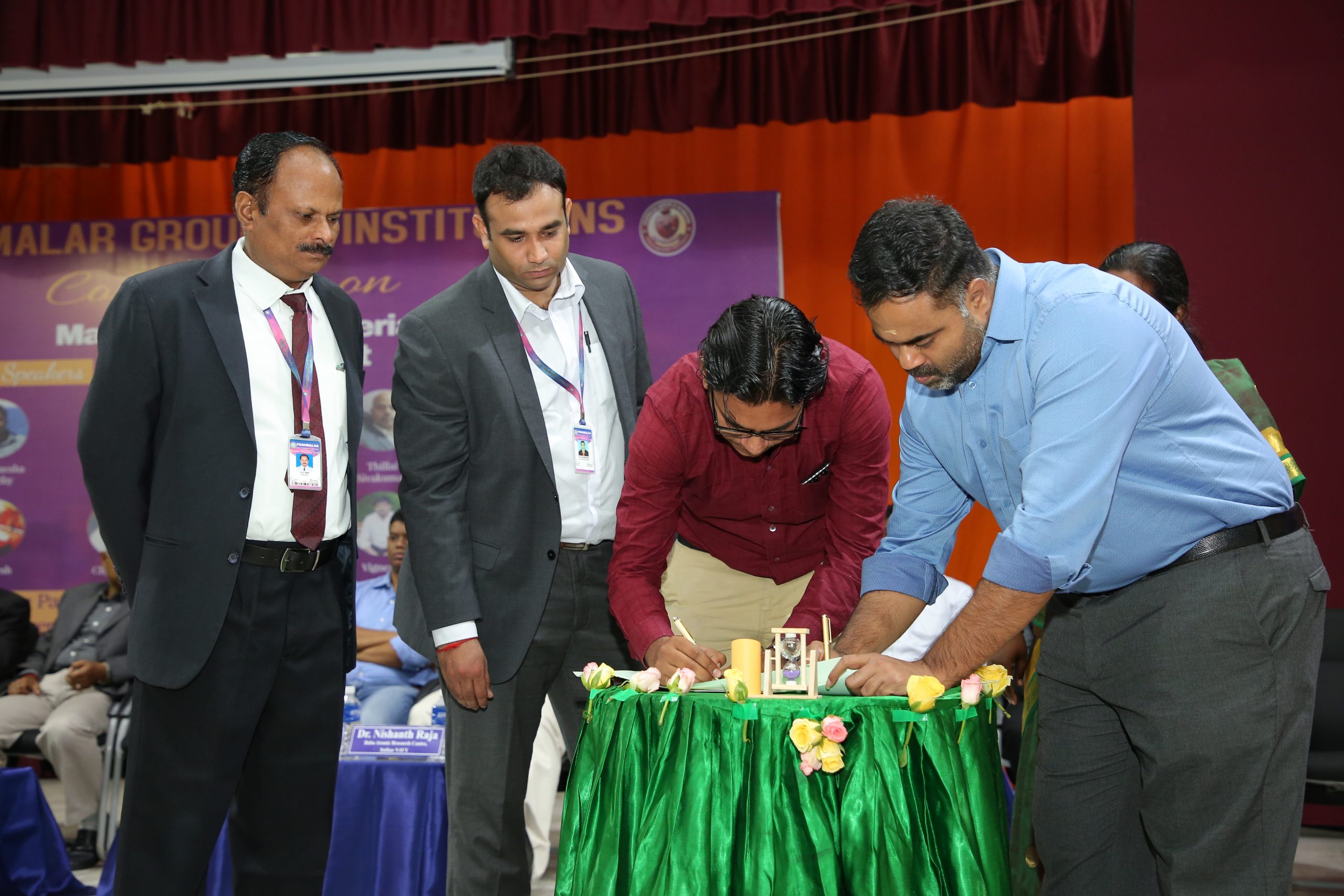
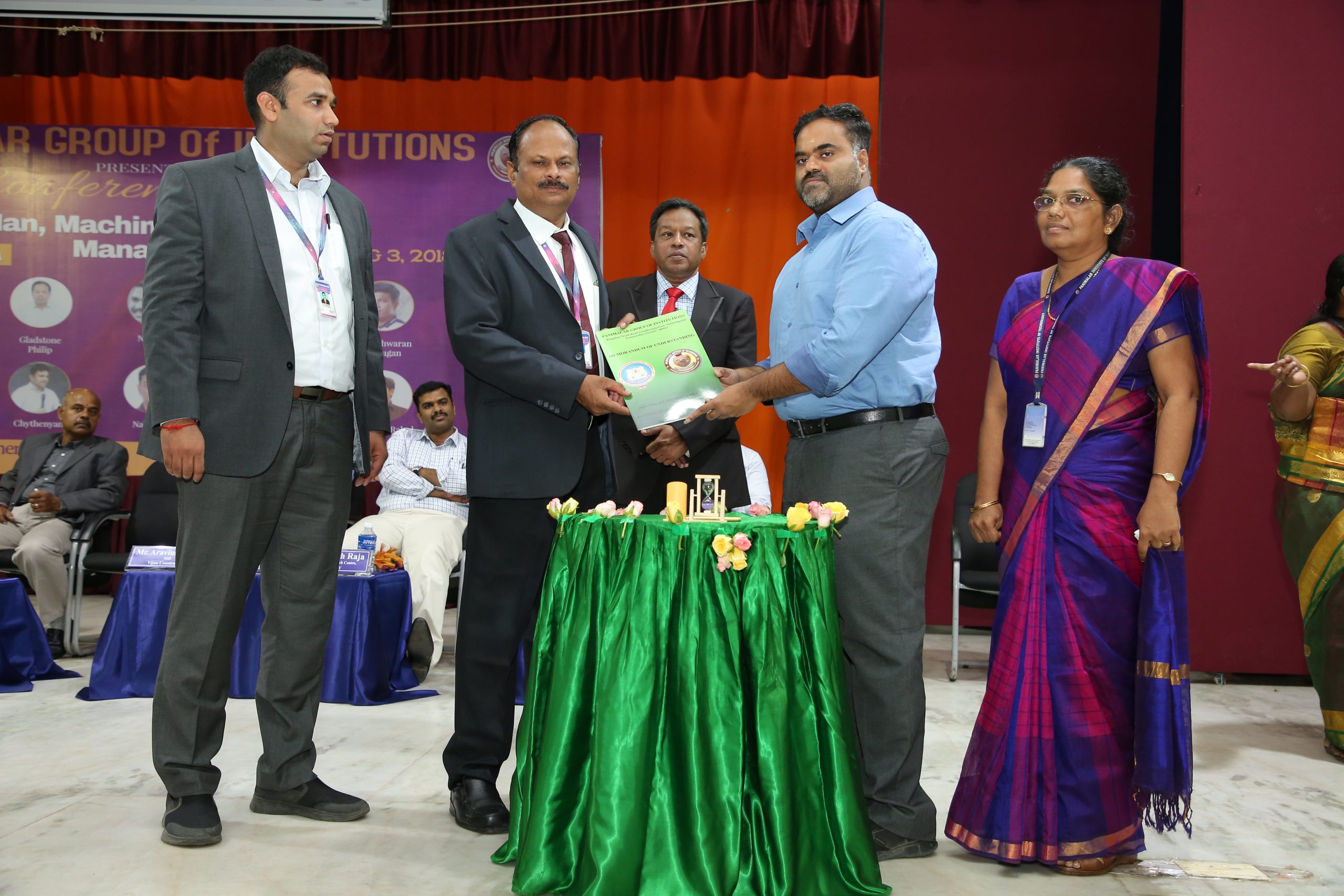
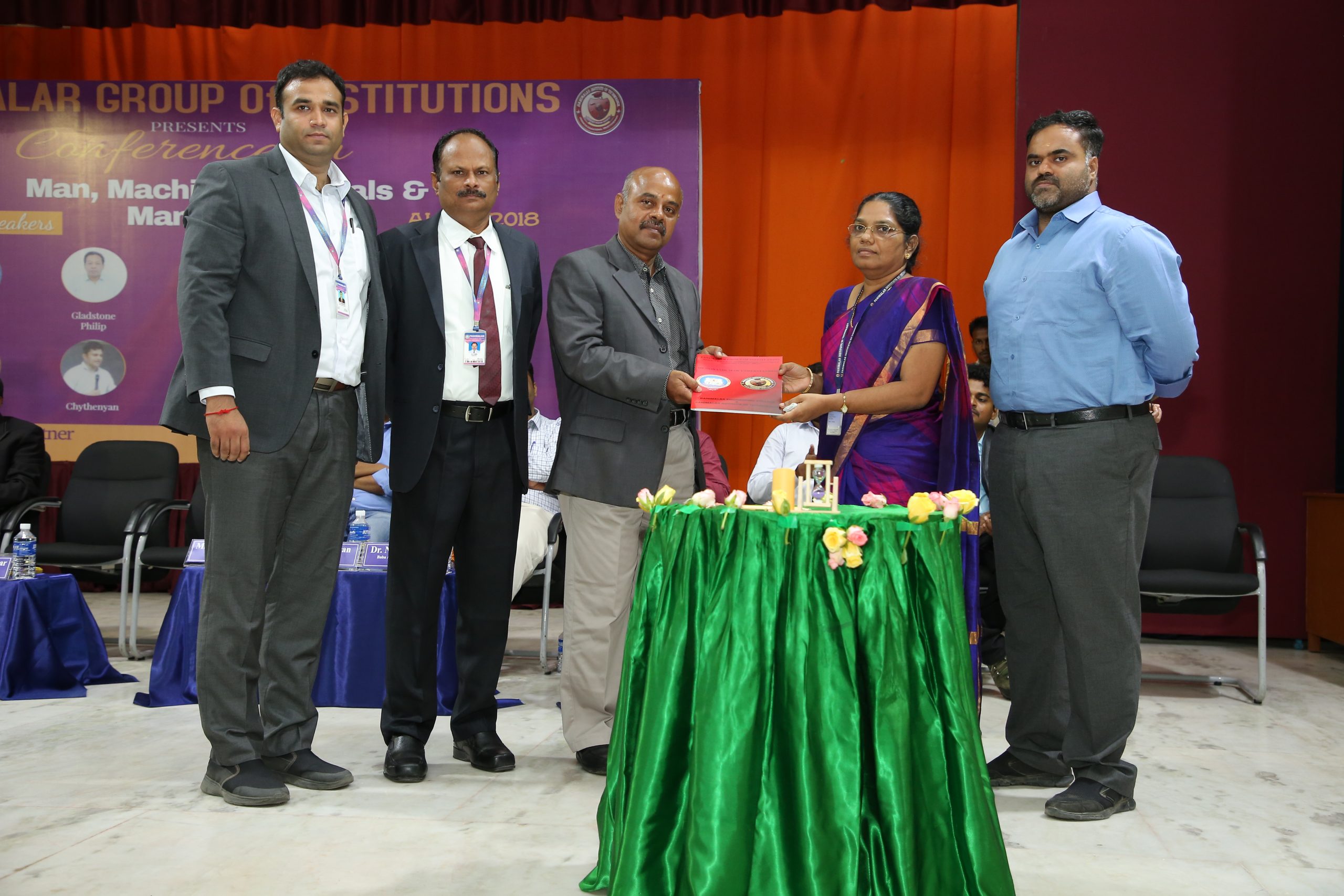
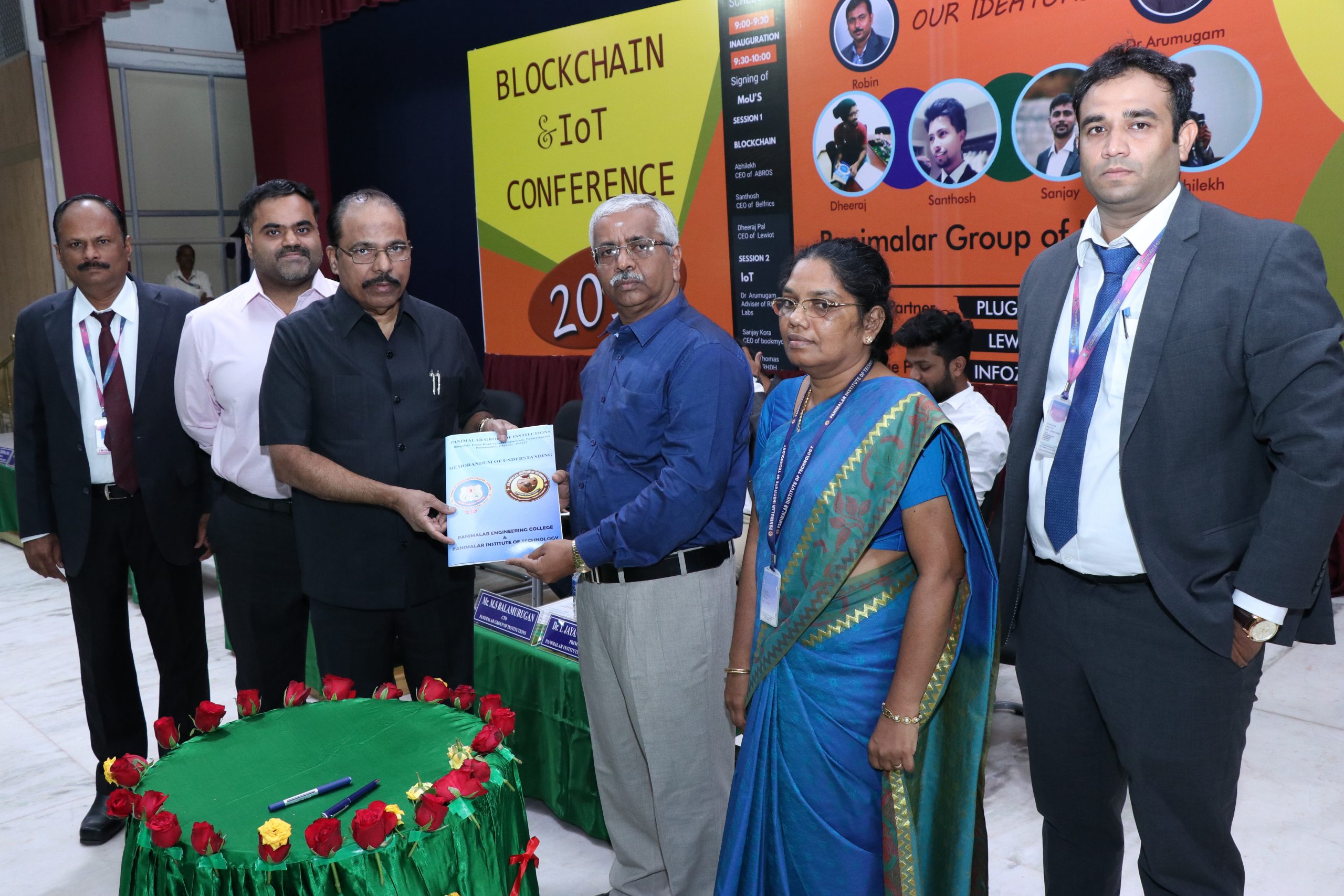
| S.NO | NAME OF THE COMPANY | DATE OF MOU SIGNED |
| 1. | Netmasters | 19.12.09 |
| 2. | Vee Eee Technologies Solution Pvt.Ltd. | 11.07.13 |
| 3. | M/S Aadhityaa Infomedia Solutions | 22.07.14 |
| 4. | CMC Limited | 30.10.14 |
| 5. | LinuXpert Systems | 17.06.15 |
| 6. | M/s Trios Technologies Pvt. Ltd. | 23.06.16 |
| 7. | Global Techno Solutions | 27.06.16 |
| 8. | Lumisense Technologies Pvt. Ltd | 29.11.16 |
| 9. | ICT Academy | 03.02.17 |
| 10. | Pantech ProEd Private Ltd | 07.06.17 |
| 11. | Infoziant Systems Private Limited | 16.09.17 |
| 12. | Einnel Technologies | 20.07.17 |
| 13. | Mazenet Solution Private Limited | 29.11.17 |
| 14. | Red Hat India Private Limited | 09.02.18 |
| 15. | Asictron Control System | 17.08.18 |
| 16. | Prag Robotics Private Limited | 13.12.18 |
| 17. | Virtual Techz | 27.07.19 |
| 18. | Imarticus Learning Pvt Ltd (Data Science Club) | 24.08.20 |
CSE Library
| Books | Title | Numbers available in the department | ||
|---|---|---|---|---|
| Journals | CDs, VCDs, Multimedia | |||
| No of Journal | E-Journal | |||
| 5,118 | 1,441 | 24 | 123 | CD – 40 |
Main Library
| Books | Numbers available in the department | |||
|---|---|---|---|---|
| Journals | CDs, VCDs, Multimedia | Any other, Please Specify | ||
| No of Journal | E-Journal | |||
| 36060 | 94 | 36 | CD-1,500 | Audio, Video Facility Available Digital Library |
Digital Library
- IEEE Computer Society digital library
- ACM digital library
Academic Schedule
E-Books – 2013 Regulation
III SEMESTER
- E-BookMA6351 Transforms and Partial Differential Equations
- E-BookCS6301 Programming and Data Structure II
- E-BookCS6302 Database Management Systems
- E-BookCS6303 Computer Architecture
- E-BookCS6304 Analog and Digital Communication
- E-BookGE6351 Environmental Science and Engineering
IV SEMESTER
- E-BookMA6453 Probability and Queueing Theory
- E-BookCS6551 Computer Networks
- E-BookCS6401 Operating Systems
- E-BookCS6402 Design and Analysis of Algorithms
- E-BookEC6504 Microprocessor and Microcontroller
- E-BookCS6403 Software Engineering
V SEMESTER
- E-BookMA6566 Discrete Mathematics
- E-BookCS6501 Internet Programming
- E-BookCS6502 Object Oriented Analysis and Design
- E-BookCS6503 Theory of Computation
- E-BookCS6504 Computer Graphics
VI SEMESTER
- E-BookCS6601 Distributed Systems
- E-BookIT6601 Mobile Computing
- E-BookCS6660 Compiler Design
- E-BookIT6502 Digital Signal Processing
- E-BookCS6659 Artificial Intelligence
- E-BookIT6004 Software Testing
VII SEMESTER
- E-BookCS6701 Cryptography and Network Security
- E-BookCS6702 Graph Theory and Applications
- E-BookCS6703 Grid and Cloud Computing
- E-BookCS6704 Resource Management Techniques
- E-BookCS6004 Cyber Forensics
- E-BookCS6007 Information Retrieval
VIII SEMESTER
- E-BookCS6801 Multi – Core Architectures and Programming
- E-BookHuman Computer Intractioin
- E-BookSoftware Project Managment - SPM
E-Books – 2008 Regulation
III SEMESTER
- E-BookMA6351 Transforms and Partial Differential Equations
- E-BookCS2201 Data Structure
- E-BookCS2202 Digital Principles and Systems Design
- E-BookCS2203 Object Oriented Programming
- E-BookCS2204 Analog and Digital Communication
- E-BookGE6351 Environmental Science and Engineering
IV SEMESTER
- E-BookMA6453 Probability and Queueing Theory
- E-BookCS2251 Design and Analysis of Algorithms
- E-BookCS2252 Microprocessors and Microcontrollers
- E-BookCS2253 Computer Organization and Architecture
- E-BookCS2254 Operating Systems
- E-BookCS2255 Database Management Systems
V SEMESTER
- E-BookCS2301 Software Engineering
- E-BookMA2265 Discrete Mathematics
- E-BookCS2302 Computer Networks
- E-BookCS2303 Theory of Computation
- E-BookCS2304 System Software
- E-BookCS2305 Programming Paradigms
VI SEMESTER
- E-BookCS2351 Artificial Intelligence
- E-BookCS2352 Principles of Compiler Design
- E-BookCS2353 Object Oriented Analysis and Design
- E-BookCS2354 Advanced Computer Architecture
- E-BookIT2353 Web Technology
- E-BookIT2354 Embedded System
VII SEMESTER
- E-BookMG2452 Engineering Economics & Financial Accounting
- E-BookCS2401 Computer Graphics
- E-BookCS2402 Mobile And Pervasive Computing
- E-BookCS2403 Digital Signal Processing
- E-BookIT2024 User Interface Design
- E-BookIT2032 Software Testing
VIII SEMESTER
PUBLICATIONS
